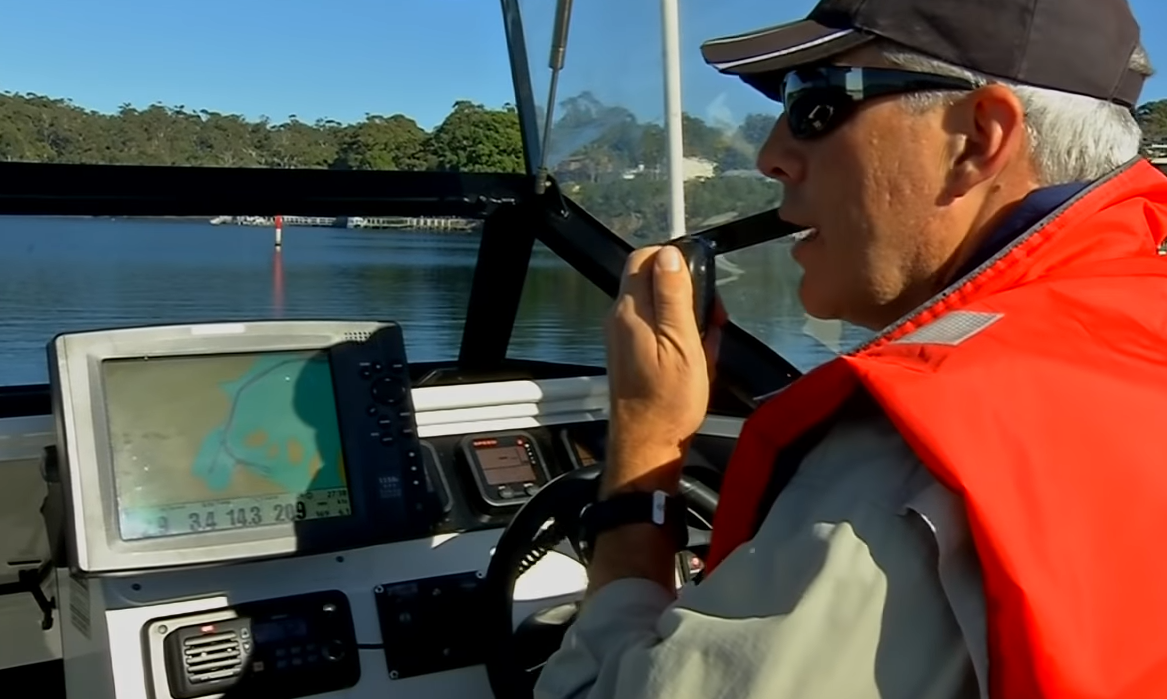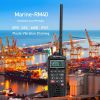A marine radio is essential

In an emergency, communication is vital and a marine radio is essential. Mobile telephones, although useful as a backup communications system, cannot replace a marine radio.
When you need to carry a marine radio
You must carry a marine band radio if you go more than five nautical miles from the mainland, or more than one nautical miles from an island situated more than five nautical miles from the mainland. The choice of radio is up to you, it can be 27mHz, VHF or HF.
Which channels to use and when
Always listen on the distress channel and if you need to make a call, you can use this channel first and then switch to a working channel. When the call is finished, resume listening on the distress channel (and the working channel if needed using the dual watch function).
Using dual watch function
The dual watch (DW) function allows you to pre-program two different channels into your radio and monitor both by hitting the DW button. The first channel programmed should always be the distress channel. The second channel programmed can be your local working channel. Once these are programmed, it’s easy to select each for use and automatically hear a call coming in on either channel.
Digital Selective Calling
If your vessel has a marine radio with Digital Selective Calling (DSC) capability, then you are advised to refer to the radio operator’s manual to ensure you understand and are familiar with how to use the DSC function in an emergency. DSC is a standard for sending pre-defined digital messages via the high-frequency (HF) and very-high-frequency (VHF) maritime radio systems. It is a core part of the Global Maritime Distress Safety System (GMDSS). DSC should be connected to the vessels GPS (Global Positioning System) so the latitude and longitude coordinates can be sent with the distress message. If you do not have your VHF radio connected to a GPS, you may be able to specify latitude and longitude manually (see manufacturer’s instructions)
Licensing requirements and operating procedures
Operators of 27 MHz marine radios do not need to be licensed. Operators of VHF and MF/HF marine radios must hold an operator’s certificate.
Unauthorised use of radios
Marine radios have a very serious purpose. Falsely indicating distress wastes a lot of time and resources; possibly weakening the ability to respond to a genuine emergency, and carries a severe penalty.






